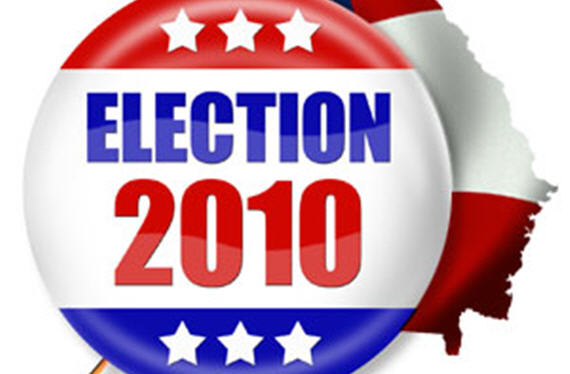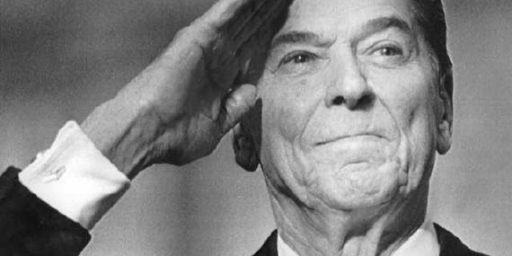Democrats Preparing To Cut Losses In Vulnerable Races
Democrats are sending some of their candidates to the Death Panels.
If you happen to be a Democrat in danger of losing this November with no real hope of closing the gap with your opponent, things are about to get a whole lot more difficult for you:
WASHINGTON — As Democrats brace for a November wave that threatens their control of the House, party leaders are preparing a brutal triage of their own members in hopes of saving enough seats to keep a slim grip on the majority.
In the next two weeks, Democratic leaders will review new polls and other data that show whether vulnerable incumbents have a path to victory. If not, the party is poised to redirect money to concentrate on trying to protect up to two dozen lawmakers who appear to be in the strongest position to fend off their challengers.
“We are going to have to win these races one by one,” said Representative Chris Van Hollen of Maryland, chairman of the Democratic Congressional Campaign Committee, conceding that the party would ultimately cut loose members who had not gained ground.
With the midterm campaign entering its final two months, Democrats acknowledged that several races could quickly move out of their reach, including re-election bids by Representatives Betsy Markey of Colorado, Tom Perriello of Virginia, Mary Jo Kilroy of Ohio and Frank Kratovil Jr. of Maryland, whose districts were among the 55 Democrats won from Republicans in the last two election cycles.
Representatives John M. Spratt Jr. of South Carolina, chairman of the Budget Committee, and Earl Pomeroy of North Dakota, who is seeking a 10th term, are among the senior Democrats who have appeared to gain little ground in the summer months in the toxic political environment. A sputtering economy and discontent with Washington have created a high sense of voter unease that has also put control of the Senate in question.
To hold the line against Republicans, the House speaker, Nancy Pelosi, issued an urgent plea for members in safe districts to help their endangered colleagues by contributing money. She called out Democrats who were delinquent on paying their party dues and instructed members with no re-election worries to tap into a combined $218 million from their campaign accounts to help save their majority.
“We need to know your commitment,” Ms. Pelosi wrote to lawmakers last week in a private letter, demanding that they call her within 72 hours to explain how they plan to help. She added, “The day after the election, we do not want to have any regrets.”
(…)
Party leaders have ordered new polls in second-tier districts to see if Democrats in less competitive areas are suddenly vulnerable. Democrats are scouring for signs of a Republican wave, carefully watching clusters of races in Illinois, Indiana, New York, Ohio and Pennsylvania, which under a worst-case scenario could represent almost enough seats to lose the House.
“In 2008, there was this sense of hope and this sense of being able to change the world,” said Representative Zack Space, Democrat of Ohio. “A lot of that enthusiasm doesn’t exist now, and I think a lot of that is a result of having been in a recession for two years.”
It’s an understandable reaction, of course. Faced with limited resources and a limited amount of time, Democrats are wise to consider not throwing good money after bad in a race that they aren’t going to win anyway. As Jim Kessler points out in today’s Washington Post, however, there is another strategy for the Democrats:
There is a model for Democrats: Ronald Reagan’s triumph in 1982. What can Obama and the Democrats learn from the Great Communicator? Plenty. Reagan understood that the economy was so bad that to tout his “accomplishments” would be laughable. But though he couldn’t sell the electorate on where the nation was at the time, he knew he could sell them on where he planned to take it. With the country shaken by a series of recessions and foreign policy setbacks, he rallied Americans behind his optimism (“Don’t let anyone tell you that America’s best days are behind her”) and faith in American exceptionalism (“the last, best hope of man on Earth”). Things might look bleak today, he told voters, but blue skies lie ahead.
If Democrats are to hold on in November, they must follow Reagan’s tack, sketching a vision for the future that has the United States leading the globe with the world’s strongest economy — one fueled by private-sector growth and a successful middle class. And they must resist the temptation to succumb to a populism that portrays members of the middle class as weak, powerless victims.
(…)
Optimism wasn’t Reagan’s only tactic, of course. He also told people that there were only two routes to take — his, or the one that led back to Jimmy Carter. In the process, he portrayed the Democrats as the party of pessimism, limits and the belief that, as he put it, “the United States has had its days in the sun, that our nation has passed its zenith.”
Reagan’s strategy did work to some extent in 1982. While Republicans lost 26 seats in the House, they managed to hold the Senate and, of course, when Regan’s optimism was proven correct two years later, he was rewarded with a landslide re-election victory.
Kessler seems to think that Obama and the Democrats would have similar success if they adopted Reagan’s strategy. The problem with that thesis, however, is that Reagan’s optimism wasn’t just an affection he developed at the last minute for the 1982 elections, it was part of his message throughout the 1980 Presidential campaign, and throughout his Presidency. For the Democrats to try talking like Reagan at this late hour would sound strange to most voters, and wouldn’t be consistent with the message they’ve been putting out for the past two years.
More importantly, though, no amount of messaging is going to undue the damage that two years of bad policies and a bad economy have done to the Democratic Party in Congress. That’s why they’re wise to start cutting their loses and doing what they can to prevent a bad year from becoming horrible.







So much for loyalty. The members vote for what the leadership tells/forces them to and then gets abandoned despite Dems having a money advantage. That’s loyalty.
This illustrates a major difference between 1994 and today. Back then, very few had any idea about the shoals they were headed to. (This actually applies to the GOP too, there were people in the RNC who could not have been more surprised about the results.)
This year Pelosi and crew know exactly what they are up against, have their eyes wide open and will make the tough choices necessary. Some of these “abandoned” candidates may actually win, since some of them are pretty good campaigners. But it would be political malpractice to spend money in places where you are polling in the 30’s, when that money and staff may be used to help push an otherwise close race across the line. It may not be enough, but no one can accuse them of being asleep at the switch.
As for Idiot’s loyalty comment, well, the handle seems apt.
And how is this policy of “triage” different from what every party does in every election? Resources are always limited relative to what you would love to do ideally. Limited resources are always allocated to places where they will do the most good. There is nothing here that is in the least unusual or remarkable.
Huh? What exactly is the message that Obama ran on in 2008 and which is part of his political identity? “Hope”. “Change” ??? You can mock them all you want, but it is hard to claim that they are not optimistic.
Well that is a strange conclusion, given that you just got finished discussing how Reagan’s messaging was relatively successful in “undoing the damage” of two years of bad policies and a bad economy.
The republicans need to have their policy proposals primed and ready to fire; before the election if necessary. if they can’t take advantage of the dem’s shocking disregard for the majority of voters, then they deserve to retain the reputation earned the last 15 years.
I wonder why this administration can’t see the obvious.
From Clarice Feldman today at The American Thinker:
John Goodman spelled out the reasons for the lack of economic recovery clearly. Clearly enough so that even the dopes in Congress and the white House, virtually none of whom have one bit of experience running a business ,could understand if they read it instead of wasting their time with big idea economists like Romer who admit they haven’t a clue:
Tano, the two years of bad policy and bad economy were laid on Carter; not Reagan’s first two years.
“Disastrous economic policy is almost certainly the reason. And number one on my list of disasters is the new health reform law.”
Oh yes, of course, because the economy was just firing on all cylinders before HCR was even mentioned…
What makes the Dems think the RNC won’t just counter their spending strategy? I’m afraid it’s too late to fix what the real problem is, Dem policies that people are just now understanding.
Oh, does that mean that all of the movement towards the Republicans that has happened up to now is NOT based on any real understanding of Dem policies? And if the people are only starting to understand those policies now, shouldn’t we wait a bit to see what they actually do conclude about them?
This is really simple. The Democrats had a majority in both houses of congress as well as holding the white house. The lied about what they were about to get in to office and after they did, thought they had a mandate to install their agenda. America is not and never will be a far left nation. We have a far left President with a far left congress. The dems managed to triple or quadruple the debt in 2 years. Obama spent more in one year than Bush did in 8. Inspite of all the BS, the economy is not getting better. The jobless rate remains high and will as long as Obama is Pesident. He is trying to employ Clower-Piven strategy to transform this nation. It will not work. Obama will end up being impeached.
BTW Zels, that’s Cloward-Piven. Points if you can tell us who was the first to come up with the idea of guaranteed national (annual minimum) income.
I don’t give a shit. I am not suprised you are aware of “Cloiward-Pliven. That combined with and adherence to the teachings of Saul Alinsky and here is were we are. The bozo who is our President is going to tell us the economy is getting better. That is probably true if you work in the public sector. Problem is the public sector does not pay the bills. Sam to guarantee a minimum annual income, the government would have to steal the money from those who earned it to give it to those who did not. At that point you will have a shooting war, and I have go enough guns and ammo to keep what is mine. I do not need anything of yours and I will bite the hand that trys to take mine. It Paines me to tell you I do not have a Tom of an idea who thoght of the idea but not all radical thinking by revolutionarys is rational.
The Dems should start redirecting pork barrel spending now too. My district (Perriello’s) is getting a huge amount of Dept of Defense organizations moving here. I’d expect it to be moved to another safer Dems district.